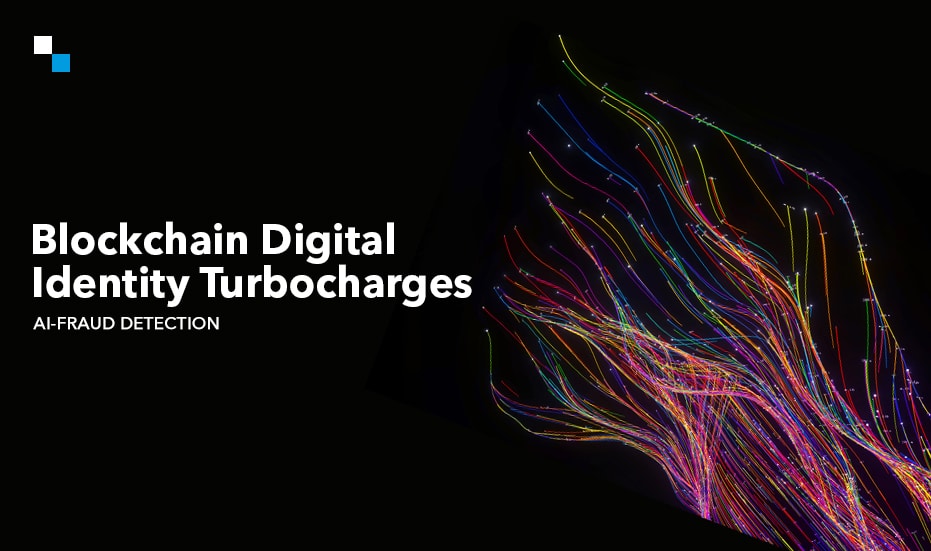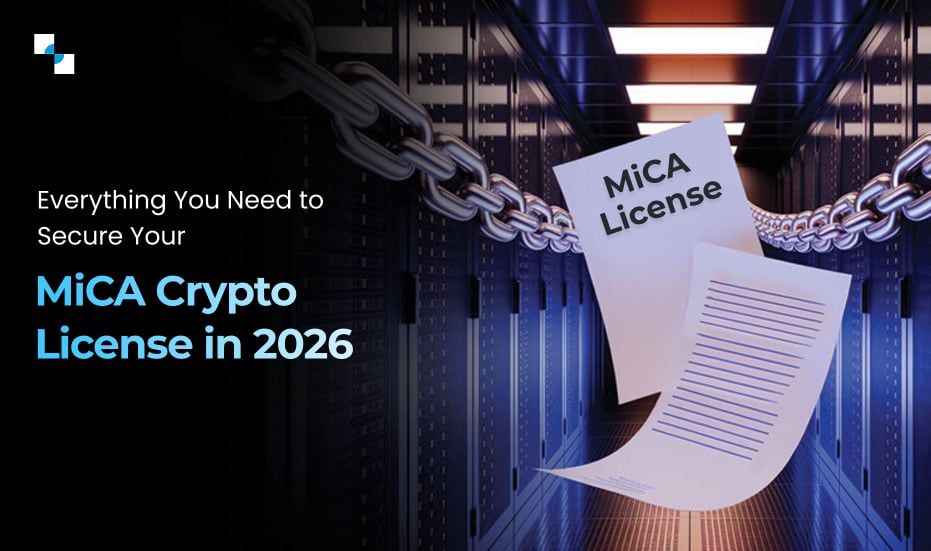Are you frustrated with faceless fraudsters bleeding your bottom line dry? Artificial intelligence has emerged as a powerful weapon against online scams, but even these clever algorithms can be outsmarted. What if there was a way to fortify your AI’s defenses and create an impenetrable shield against identity theft? Blockchain digital identity in AI might be the missing piece you have been searching for. This innovative platform based on leading technology disrupts traditional methods, offering a secure and transparent system to verify user identities. Thai article helps you discover how decentralized identity verification can empower your AI to identify and eliminate fraud before it wreaks havoc on your business.

Pain Points Of Current AI- Digital Identity Management
AI is revolutionizing digital identity management, offering enhanced security and convenience. However, several trending AI- frauds threaten to undermine this progress, which necessitates leveraging digital identity platforms designed on premium blockchain platforms. Explore the challenges of the AI identity systems so that we can also deeply understand its solutions-
Deepfakes and Synthetic Identities
The emergence of realistic AI-generated forgeries known as “deepfakes” and synthetic identities—fabricated personas accompanied by convincing documentation—creates a powerful tool for identity theft. Criminals can use these to bypass security measures, impersonate real people, and commit fraud. Deepfakes can erode trust in public figures and sow discord. The deepfake detection market is booming, reaching $3.86 billion in 2022 and projected for significant growth.
Sybil Attacks and AI Vulnerability
AI advancements can make computer systems more susceptible to Sybil attacks. Here, a malicious actor creates numerous fake identities to manipulate a system (e.g., online polls, voting systems). AI can be used to automate and scale these attacks. Such attacks could disrupt voting processes and compromise results.
Privacy Concerns and Algorithmic Bias
AI systems rely on vast amounts of personal data to function. This raises concerns about data privacy and potential misuse. Additionally, biases within AI algorithms can lead to discriminatory outcomes in identity verification, unfairly flagging or excluding legitimate users, and denying them access to essential services. Robust data privacy regulations and responsible data collection practices are crucial. Developing fairer AI algorithms that minimize bias requires careful data selection and ongoing monitoring.
While AI offers tremendous benefits for digital identity management, addressing its own challenges is paramount. It is imperative to employ a multifaceted strategy like decentralized identity management that includes reliable detection technologies, respects privacy, and enhances the security of identities. We can fully utilize AI to create a safe and inclusive digital identity landscape by overcoming these obstacles.
How Does Blockchain Identity Verification Combat The AI-Digital Identity Challenges?
Blockchain identity verification offers several advantages that can address the key challenges faced by AI-based identity management systems:
Combating Deepfakes and Synthetic Identities
- Focus on Source Data- While AI struggles to definitively identify deepfakes, blockchain focuses on securing the source data used for verification. By storing verified credentials on a tamper-proof ledger, it becomes much harder to inject fake information into the system.
- Decentralized Verification- Blockchain doesn’t rely on a single authority to verify identities. This distributed approach makes it more difficult for deepfakes or synthetic identities to infiltrate the system across multiple verification points.
Mitigating Sybil Attacks
- Unique Identities- Blockchain assigns unique identifiers to each user, making it difficult to create and manage a vast network of fake identities. This thwarts the core tactic of Sybil attacks aimed at overwhelming a system with fake accounts.
- Transparency and Auditability- All transactions on a blockchain are transparent and auditable. This allows for easier detection of suspicious activity patterns associated with Sybil attacks.
Addressing Privacy Concerns
- User Control- Blockchain allows users more control over their personal data. They can choose what information to share and with whom, reducing the risk of data breaches and misuse.
- Reduced Reliance on Centralized Systems- By eliminating the need for central authorities to store identity data, blockchain minimizes the risk of data leaks or insider threats within a single organization.
Here, we have known how blockchain-based digital identity solutions enhance the security of AI-based identity management. These solutions not only secure the identities but also protect them from identity thefts and AI fraud. Getting in touch with a premium blockchain identity management company is a smart move to develop robust and secure digital identity platforms based on leading blockchain networks. Let us now scroll to learn how these solutions operate to combat the challenges.
How Does Decentralized Digital Verification Work In AI?
Decentralized digital identity verification, leveraging blockchain technology, transforms AI-based identity management. It creates a secure, distributed ledger storing verified credentials. This ledger is accessible by authorized AI systems for verification. During interactions requiring verification (e.g., account signup), the AI can directly access and confirm your credentials from this tamper-proof record. This eliminates centralized verification points, reducing data breach risks. Additionally, you control what information the AI sees, enhancing privacy. This synergy empowers AI for reliable identity checks while safeguarding your information.
Use Cases Of Blockchain Digital Identity In AI
- Secure Onboarding with AI Assistants- An individual can leverage AI assistant to set up a new bank account. Blockchain identity verification can securely share your verified credentials with the AI system, expediting the process without compromising security.
- AI-powered KYC/AML- Financial institutions use AI to analyze customer data for fraud prevention. Blockchain identity can provide a secure source of customer information, enabling AI to make more accurate risk assessments and prevent identity theft used in financial crimes.
- AI-driven Border Control with Streamlined Security- AI can analyze travel documents at border crossings. While integration of decentralized identity verification ensures the authenticity of these documents, allowing AI to make faster and more reliable decisions, reducing wait times for travelers.
- Managing Healthcare data- Various healthcare organizations are using AI assistants to manage patient’s healthcare data. When leveraging blockchain based digital identity platforms, it ensures only authorized AI systems can access this sensitive information, protecting your privacy while allowing AI to personalize your healthcare experience.
- Personalized AI Experiences with Secure Data Access- In essence, blockchain provides the secure foundation for identity data, while AI leverages this data to perform sophisticated analysis and verification tasks. This powerful combination unlocks a future of secure, user-centric, and fraud-resistant AI applications.

The Future of Decentralized Identity Management
The ideal solution likely lies in a hybrid approach that leverages the strengths of both AI and blockchain. AI can continue to analyze data and identify anomalies, while digital identity solutions based on premium blockchain networks provide a secure and tamper-proof foundation for storing verified identity information. By working together, these technologies have the potential to create a future of secure, user-centric, and fraud-resistant digital identity management.
How a Blockchain Identity Management Company Can Help?
As AI becomes more sophisticated, so do the tools wielded by cybercriminals. Staying ahead of the ever-shifting landscape of AI-based fraud is critical. Vigilance, education, and proactive security measures are essential defenses against these increasingly deceptive threats. Thankfully, AI is a double-edged sword. While it fuels fraud, it also empowers solutions. Robust decentralized digital identity systems offer powerful tools to combat these evolving AI identity management challenges.
The fight against AI fraud requires cutting-edge solutions. A renowned and experienced blockchain identity management company can be your trusted partner. Connect with Antier! It is a leading and premium blockchain firm that boasts qualified and experienced blockchain professionals who are well-versed in designing digital ID solutions based on popular blockchain platforms. Their deep expertise leverages the power of blockchain technology to develop the finest digital identity solutions. These solutions offer secure, tamper-proof identities, making it significantly harder for AI-powered scams to succeed. Partnering with such a company equips you with the tools to build a more secure digital future.







